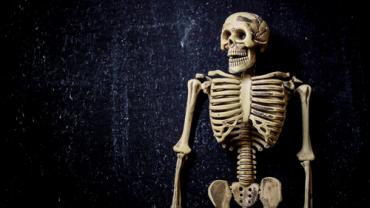
The role of boron in human physiology is controversial and not fully understood. Like vanadium, lithium, silicon, and possibly other metals, if there is a biological requirement for it in humans, it is as an ultra-trace mineral—an element that typically comprises less than one microgram per gram of a given organism (less than 0.0001% by weight), but which plays a significant role in its metabolism or physiology.
Although the precise roles of boron are unknown, boron seems to affect a surprising array of body systems and biochemical processes, and boron supplementation has resulted in some interesting outcomes that may be of benefit in specific patient populations. There is enough evidence of detrimental effects from boron deprivation studies in animals and low boron intakes in humans to lead many researchers to conclude that boron is, in fact, essential for human health, and that boron intake should be “a relevant nutritional concern.”
Bone health and osteoporosis are the issues for which boron has been most deeply explored, with boron supplementation resulting in reduced urinary calcium and magnesium excretion in postmenopausal women. Joint health may also benefit from boron supplementation. In areas of the world where boron intake is typically less than 1.0 mg/day, the estimated incidence of arthritis ranges from 20-70%, compared to 0-10% in areas where daily boron intake is closer to 3 to 10 mg. Additionally, in a small-scale double-blind placebo controlled trial in subjects with osteoarthritis, 50% of subjects receiving 6 mg/d of boron experienced symptom improvement compared to just 10% receiving the placebo.
Once generally believed to be the exclusive purview of women, men are increasingly afflicted with osteoporosis. Nevertheless, boron may be helpful for women, specifically, beyond its bone-boosting potential. In a triple-blind placebo controlled trial, young women experiencing primary dysmenorrhea took 10 mg/day of boron for two days before the onset of menstruation and for three days into the cycle (for two cycles). Compared to women who took the placebo, the women supplementing with boron experienced small but significant reductions in the duration and severity of menstrual pain. The study authors attributed this to possible anti-inflammatory effects but noted that additional research is needed to identify any influence of boron on female hormones.
There is evidence that boron does, indeed, influence steroid hormones. In humans, boron supplementation resulted in a significant increase in plasma estradiol, and boron has been shown to increase plasma vitamin D and testosterone in rats. This may help explain the improvement in bone health as well, in addition to any role boron plays in mineral retention in the physical structure of bone tissue. Increases in steroid hormones led one study’s author to write that boron could potentially be used as an ergogenic aid for athletes! Note, however, that compared to placebo, boron supplementation had no effect on 1-rep max for squat or bench press, or differences in body fat percentage compared to placebo in healthy, young male bodybuilders. So don’t look for a late-night infomercial shilling a patented boron-based athletic performance enhancer anytime soon. (But being that young male bodybuilders likely have relatively high testosterone levels to begin with, it would be interesting to see if boron supplementation has beneficial effects in men with low testosterone.)
Typical boron intake in humans is around 2.2 mg/d, with 1.9 mg/d being excreted in the urine, with little apparent intra-individual variation. Supplementation with 10 mg of boron per day resulted in the recovery of 84% of the dose in the urine. Boron intake may vary widely, though, owing to different habitual diets as well as different soil concentrations of boron. (Boron is required for healthy cell walls and pollen tubes in plants, and plant foods are the sources of boron in the human diet.) One study suggests 1-13 mg/d as an acceptable safe range for boron intake for adults, and noted that many do not consistently consume more than 1 mg/day. Some may be getting only 0.3-.41 mg/d. (Yet another reason to increase intake of vegetables and fruits?)
Subjects with a body mass index (BMI) in the obese category had lower blood boron levels than non-obese subjects. Boron is certainly not the next miracle weight loss pill, but it’s an interesting finding. An area where boron repletion (assuming there is such a thing) may hold more promise is in brain health and cognitive function. More research is needed (as usual), but compared to a diet with low boron, diets higher in boron have led to improved cognitive and psychomotor function in healthy older adults, leading researchers to believe that boron is, in fact, essential for human health.